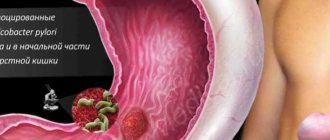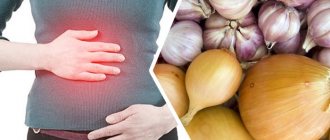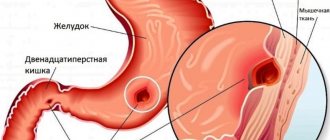Back to list Previous article Next article
18.06.2019
Tags:
intestines, Coffee
Vote
Bad news for coffee lovers: your favorite drink negatively affects your intestinal microflora. Excessive coffee consumption can cause dysbiosis. But there is also good information: thanks to coffee, the intestines begin to actively contract, helping to remove undigested residues from the body - the so-called toxins.
American scientists from the University of Texas were interested in the effect of coffee on intestinal tissue. They were able to establish that regardless of whether the drink contains caffeine, coffee is able to activate intestinal muscle tissue, but at the same time inhibits the activity of intestinal bacteria.
Intestinal microflora reacts negatively to coffee
The studies were conducted on laboratory rats who were given coffee for three days: one group was regular coffee, the other was decaffeinated. The fecal masses of the rodents were sent to the laboratory to study the bacterial composition of the intestines. At the end of the experiment, the quantitative composition of the microflora decreased significantly in both groups of animals.
After this, studies were carried out on samples of intestinal microflora. Scientists exposed cultures of intestinal bacteria to coffee solutions with a concentration of 1.5% and 3%. Inhibition of bacterial activity was noted in both cases, regardless of the concentration of the drink. Unfortunately, the researchers did not find out which types of bacteria were most sensitive to the drink - beneficial or pathogenic. This remains to be seen in the next series of experiments.
Coffee benefits and harm to health
Kitchen. Early morning. A cup of aromatic coffee is steaming on the table... Is this a familiar picture? According to statistics, 90% of the country's adult population starts their morning with this invigorating drink. And then they continue to drink coffee throughout the working day. Coffee has acquired many legends today. So what is it really like?
Caffeine and its benefits
The main product found in coffee is caffeine. Caffeine is a moderate stimulant. The effects of caffeine on people vary depending on their sensitivity to this component. Some drink several cups a day without any effect on them, while others may feel changes from even one serving of coffee. The property of caffeine is such that after entering the digestive system, it quickly dissolves in the body, being eliminated within a few hours after consumption. This is why coffee has a diuretic effect.
Caffeine increases dopamine levels in the brain, which makes us feel more alert and cheerful. Drinking coffee in moderation has a positive effect on the central nervous system: improves mood, increases physical and mental activity. Knowledge workers who drink 2 cups of coffee a day cope with work much faster than their colleagues who refuse to drink coffee - this was the conclusion reached by American researchers who studied the effect of caffeine on human mental abilities. However, it is difficult to determine a favorable dose on your own. After all, the effect of caffeine on each person is individual and depends on the type of nervous system.
Facts about coffee
Is drinking coffee harmful or beneficial? There is no clear answer to this question. Of course, coffee is harmful in large quantities and when consumed frequently, just as any other frequently consumed product is harmful. Coffee is prescribed both for its miraculous properties and for its ability to cause great harm. Let's figure it out.
Coffee affects the central nervous system
This is indeed true. As mentioned above, coffee is a stimulant of the central nervous system. However, exceeding the individual dose of a person leads to depletion of nerve cells, disruption of the normal functioning of the body: fatigue, lethargy, and decreased ability to work appear.
Coffee causes insomnia
Drinking coffee at night can cause insomnia. However, this effect is not observed in everyone. Those who constantly “sit” on coffee get their body so accustomed to this drink that it ceases to be a stimulant. And, nevertheless, it is not recommended to drink coffee after five o'clock in the evening.
Coffee and pills
Caffeine tends to weaken or enhance the effect of certain medications. That is why if you are an avid coffee drinker, then you should check with the doctor who prescribed your medications whether you can drink coffee with tablets. But antidepressants should not be accompanied by drinking coffee, since this product suppresses their effect.
Caffeine increases the risk of heart disease
Coffee actually increases cardiac activity. However, healthy people who drink coffee in moderation showed no tendency to develop cardiovascular diseases. No studies have confirmed a link between coffee consumption and heart attacks. People who are particularly sensitive to caffeine may experience an increase in blood pressure, but, as a rule, this only occurs for a few hours. Therefore, elderly people are not recommended to drink coffee.
Coffee and cancer
It has long been believed that there is a direct link between cancer and coffee consumption. The research was carried out over a long period of time. However, no assumptions about the relationship between the occurrence and development of cancer and coffee consumption were confirmed.
Are coffee and cigarettes a bad combination?
Many people like to drink coffee with a cigarette. Studies have shown that smokers drink significantly more coffee than non-smokers. Nicotine tends to remove caffeine from the body more quickly. Consequently, the smoker is more likely to need caffeine. According to research, those who quit smoking do not decrease their need for caffeine for about six months. It should also be noted that decaffeinated coffee more often causes the need for a cigarette. The combined use of coffee and cigarettes further increases the risk of developing arterial hypertension and may increase the manifestations of atherosclerosis of the arteries.
Coffee cures hangovers
This is the most common myth about the benefits of coffee. Caffeine is not an antidote to drunkenness, except that it gives the person himself a feeling of relief after a cup of coffee. But this is caused solely by the consciousness of the person himself. Coffee can only lift your tone a little. All the effects caused by alcohol are not neutralized by caffeine.
Coffee is addictive
By exceeding his individual dose, a person becomes dependent. Stopping coffee consumption can cause discomfort in the body: fatigue, drowsiness, headache, irritation and even depression. After a cup of coffee, these symptoms disappear. Problems usually begin to arise 12-14 hours after drinking the last portion of the drink. Everything here is the same as with sweet tooth lovers who decide to go on a diet. It is enough to endure a week or two without your favorite product, and the addiction stops.
Interestingly, the caffeine content in brewed coffee is 380-650 mg/l, in instant coffee – 310-480 mg/l, in Espresso coffee – 1700-2250 mg/l. The drink "Cola" contains about 100 mg/l of caffeine.
Author of the article Natalya Gorshkova
Expert commentary
Physician-therapist, chief physician of the multidisciplinary clinic Dialine, Dzerzhinsky district Anna Tsybulina:
“People with cardiovascular diseases should not drink coffee, incl. arterial hypertension (increased blood pressure), vascular atherosclerosis, arrhythmias, diseases of the endocrine system (including the thyroid gland, adrenal glands, diabetes), diseases of the kidneys, stomach and duodenum, since it indirectly stimulates the production of adrenaline and hormones similar to it, which enhances the already disturbed imbalance of the autonomic nervous system and can provoke a worsening of the course of the listed diseases.
Also, excessive coffee consumption is not recommended for young people and girls planning to have children.
A healthy young person can drink no more than 1 cup of coffee per day with a concentration of less than a teaspoon of coffee per glass of boiling water; it is better to dilute the coffee with milk. I recommend using coffee that you have just ground from beans, rather than instant coffee.
The best time to drink coffee is morning. Exceptions are cases when there is a state of severe hypotension accompanied by a decrease in pressure. Then the doctor may recommend drinking coffee or strong tea to bring the patient out of the threatened state, regardless of the time of day. However, you cannot independently “prescribe” coffee for yourself to take every day with low blood pressure!”
Coffee activates the intestinal muscles
The effects of coffee on the intestines of rats were studied separately. Scientists noted that after drinking coffee, contractions of muscle tissue in the lower parts of the large intestine, which is responsible for excreting fecal matter, were activated. In laboratory conditions, with the direct effect of the drink on tissue, the same picture was recorded, and with the same result when using caffeine and decaffeine solutions.
The results of the study made scientists think about the need to study the properties of coffee for the treatment of constipation. In particular, coffee-based preparations may be useful for patients with postoperative constipation or for the non-surgical treatment of intestinal obstruction. In addition, scientists have to establish which chemical compound contained in coffee has a beneficial effect on intestinal muscle tissue.
Back to list Previous article Next article
What types and varieties are there?
Coffee is an evergreen tropical shrub with white flowers that have a scent reminiscent of jasmine. The coffee beans we are used to are contained inside red berries - two in each.
Every morning, millions of people on the planet start their day with a cup of invigorating coffee - a drink made from roasted and crushed seeds of the coffee plant. There are many varieties of coffee, but they all represent only 2 product categories: Arabica and Robusta.
Arabica is a species native to the Arabian Peninsula. It is the most ancient of the cultivated ones, and the most popular in the modern world (it occupies almost 70% of the market). Arabica beans are large, slightly elongated and flattened. The taste of Arabica may differ depending on the quality of the soil, weather conditions, and temperature conditions in which the coffee plant developed. Ethiopian Arabica is known for its soft and delicate flavor with a floral aftertaste. Kenyan beans are recognized by their sharper and bitter taste; beans from Latin America are also bitter, but have a cocoa aroma and leave behind a nutty aftertaste. Some of the most popular varieties in the world are varieties grown in Colombia. Their distinctive feature is the taste of walnuts.
Robusta, or graying coffee tree, is native to the Congo. Compared to Arabica, these varieties are more resistant to weather conditions and diseases, require less care, but are inferior in taste. Ripe grains are small and round.
There is another known coffee tree - Liberian, or Liberica, which is not so popular because it has a worse taste and aroma than other types. Liberica accounts for no more than 2% of the global coffee market.
Most popular types
Coffee lovers know many coffee drinks, but seven of them are truly the most popular and most famous in the world.
Espresso. This is a strong black coffee prepared using a press and steam. A properly prepared drink will have a thick, golden-brown foam. Consume with a little added sugar (in a high-quality drink, the sugar lingers on the foam for a few seconds before sinking to the bottom).- Cappuccino. This is natural coffee with whipped cream. The correct option is a mix of equal proportions of coffee, fresh milk and milk foam. The foam is usually sprinkled with a small amount of cocoa powder or grated dark chocolate.
- Americano. This is essentially a shot of espresso added to a cup of hot water. Usually consumed with sugar and/or milk.
- Cafe latte. A mix of 1 part espresso and three parts fresh milk. Delicious sweet, with various pastries and desserts.
- Coffee with milk. A traditional French drink, somewhat reminiscent of a latte. The difference is in the proportions of the ingredients. In the French version, the ratio of components is one to one.
- Mochaccino. This is a cappuccino or latte with chocolate syrup. Often served with a top of grated chocolate or cocoa powder.
- Macchiato. It is a combination of espresso, caramel, frothed milk and vanilla.










![Rice. 2. Clinical stigmas of chronic atrophic gastritis [4] 2. Clinical stigmas of chronic atrophic gastritis [4]](https://zakam.ru/wp-content/uploads/ris-2-klinicheskie-stigmy-hronicheskogo-atroficheskogo-gastrita-4-fig-2-330x140.jpg)
